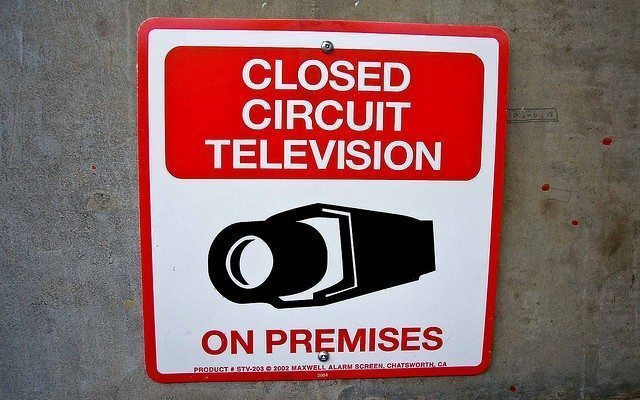 Image courtesy of [Paul Joseph via Flickr]
Image courtesy of [Paul Joseph via Flickr]
Education
CCTV Cameras in Classrooms: Big Brother Watching?
Security cameras are a common facet in many places that we frequent, from office complexes to shopping malls. Closed circuit security cameras (CCTV) are mainly put in place to keep people safe, but one notable place where CCTVs are missing is our schools.
Tragedies such as the school shooting in Newtown, Connecticut in 2012 have raised alarms for increased school security and the use of technology to keep children safe. Many schools have security cameras at their entrances and, in some cases, in hallways and other high-traffic areas. In the United States, the United Kingdom, Australia, and other nations, schools are beginning to experiment with the idea of placing closed-circuit security cameras in classrooms. Read on to learn the arguments about whether or not we should extend CCTV coverage to our public school classrooms.
What are the arguments for putting CCTVs in classrooms?
Those who support the addition of cameras to public school classrooms argue that they will increase school security while providing a useful tool for teacher collaboration. Many claim that the presence of the cameras alone would be enough to deter many students from committing crimes or engaging in common misbehavior while in the classroom. Cameras can also provide evidence if students are accused of a crime, saving administration from conducting lengthy and probing investigations.
Cameras could also be used by teachers as a tool to share effective learning methods and to connect with parents. Experienced, highly effective teachers could videotape segments of their lessons to be used in professional development programs and teacher training courses. Advocates have also argued that cameras could serve as deterrents to those bad teachers who do exist, particularly in special needs classrooms where students may have difficulty communicating instances of abuse to their parents. Parents would also have the ability to become in tune with what their children experience in the classroom, creating a closer marriage of a student’s education and home life and allowing parents to understand and supplement that education.
What are the arguments against CCTVs in classrooms?
Opponents are cautious about the installation of CCTVs due to the intrusion upon public school classrooms. Some administrators have indicated plans to use CCTVs to evaluate teacher performance and determine teacher effectiveness. Many professionals in American education oppose this method of teacher evaluation, as it seeks to make direct links between teacher methods and student achievement without accounting for other variables, such as socio-economic conditions and student behavior.
Additionally, using constant video surveillance of teachers as a form of evaluation would lead to a system where teacher merely imitate specific behaviors and methods they know evaluators are looking for while lacking creativity, individuality, and maverick methods that often characterize the best teachers and drive innovation. Many opponents also indicate that the presence of cameras could create a “Big Brother” atmosphere in the classroom, dampen student participation, and dissuade many students from exercising free speech.
Others worry that it infringes upon the relationships that teachers can have with their students. Teachers often have the ability to engage with their students about sensitive topics, including problems at home, difficulties in school, and the like. Teachers worry that installing CCTV cameras will make it less likely that students can confide in them, and therefore less likely that they are able to provide help or advice for those students. This worry is compounded by the fact that in most cases where cameras are installed, they are not able to turned off by the teachers themselves.
CCTVs in Classrooms in the UK
The idea of CCTVs has gained great momentum in Britain, where 85 percent of schools currently have CCTVs, and some schools, such as Stockwell Park High School in South London, have over 100 cameras inside its buildings (two in each classroom and 40 in hallways, cafeterias, and other areas).
The CCTV-based monitoring has had mixed reception in the UK. Teachers don’t really seem to like the institution of the cameras, citing concerns that they’re not in place for safety reasons, but rather to judge teachers. A teachers union conducted a study in the UK and discovered that 41 percent of teachers claimed that the cameras were used to find evidence that led to “negative views” of the staff being monitored.
There have also been cases of students in the UK being unhappy with the CCTV cameras placed in their schools. In a school in Essex, a student named Sam Goodman started a protest after discovering that cameras that were said to have been placed in his school for training purposes had actually been switched on. Goodman took many issues with the implementation of CCTV cameras, pointing out, “We’ll end up with all teachers being the same. And pupils will grow up thinking that it’s acceptable to be monitored like this.” He also was suspicious that the cameras were just supposed to be used for teacher training, claiming that the equipment seemed too extensive for such a narrow purpose. He eventually started a walk-out to protest the CCTV cameras.
There’s also a debate ongoing in the UK that the placement of CCTV cameras has gone too far. According to a British watchdog group called Big Brother Watch, more than 200 schools had installed CCTVs in restrooms and changing rooms (locker rooms). The only way that Big Brother Watch got that information was by filing a Freedom of Information Request with the government. A statement from Big Brother Watch claimed:
The full extent of school surveillance is far higher than we had expected and will come as a shock to many parents. Schools need to come clean about why they are using these cameras and what is happening to the footage. Local authorities also need to be doing far more to reign in excessive surveillance in their areas and ensuring resources are not being diverted from more effective alternatives. The Home Office’s proposed regulation of CCTV will not apply to schools and the new Commissioner will have absolutely no powers to do anything. Parents will be right to say that such a woefully weak system is not good enough.
While CCTV surveillance has become a sort of norm in the UK, many are still not happy about it. Those who are advocating for CCTV cameras in classrooms in the U.S. may be able to improve on the UK’s experiment to avoid the problems found there, while those who oppose the implementation may use the UK’s problems as reasoning for avoiding CCTV cameras in classrooms here.
Conclusion
Given the concentration of cameras in certain institutions, it’s no surprise that we’re now talking about implementing them in public school classrooms. While there are certainly benefits, such as added security and deterrence from fighting, there are also strong arguments against the practice, such as privacy concerns. Taking a cue from the UK’s book may be a smart idea, but whether or not the practice will catch on in the U.S. remains to be seen.
Resources
Primary
Change.org: Cameras in Special Needs Classrooms
Hudson Park High School: CCTV Report
Additional
PR Web: CCTV Cameras Can Prevent Violence in the Classroom
SelfGrowth.com: Classrooms Should Have Closed-Circuit Cameras
Boss Closed Security: School Closed Circuit TV: How Does it Work and Why?
TES Connect: CCTV is Used to Spy on Teachers
Sydney Morning Herald: School Surveillance Puts Trust at Risk
LoveToKnow.com: Keep Security Cameras Out of School Classrooms
Salon: Big Brother Invades Our Classrooms
National Education Policy Center: Cameras in the Classroom: A Good Idea?
Guardian: Someone to Watch Over You
Learn By Cam: CCTV in Schools and Classrooms
USA Today: Who’s Watching the Class?
ZD Net: Should CCTV Be Allowed in Schools and Universities?








Comments